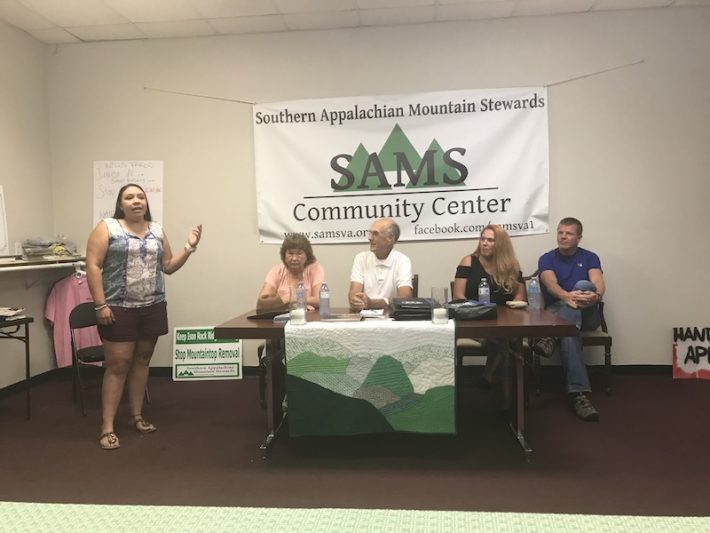Power. Success. Hope. These were the words that raced through my mind at the end of our two and a half day Faith and Money Network group immersion trip earlier this month in the communities of southwestern Virginia—a sliver of Appalachia known for its rich cultural history and the declining fortunes of coal mining. A week has gone by. Has this Trip of Perspective changed mine?

As in years past, our host was the Southern Appalachian Mountain Stewards, a fearless group of activists based in Big Stone Gap that organizes communities to fight surface mining and mountaintop removal of coal. Against all odds, given the power of the coal companies and their political allies, they succeeded in preventing the granting of a permit to a new mine on Ison Rock Ridge. Against all odds, they succeeded in publicly embarrassing a coal company enough to finally do what the law requires: covering dump trucks filled with coal to prevent the dust from becoming airborne as they speed through residential areas.
What we saw on our visit we will always remember — a mountain that no longer exists, a “clear” stream poisoned by mining runoff toxic to fish and threatening to human health, and empty storefronts in once bustling small towns — but it’s what we heard from the people who live there that resonates deeply.
SAMS introduced us to those who made a commitment to fight for this place and its people. Sister Beth of Pennington Gap was one of the first in the country in the 1990s to raise the alarm about the new more powerful painkillers starting to flood the region and make addicts out of young and old alike. Her advocacy led to new treatment centers while she continues to this day her fight to make the pharmaceutical companies accountable.
There was Ron and Jill, who moved 25 years ago from Boston to Pennington Gap where he had deep family roots. Ron recently retired from leading a government program to help miners with black lung disease. Jill is the vice mayor of the town. We heard about their work to establish the African American Cultural Center to gather the untold and often overlooked histories of African Americans who have lived in the region for generations. We talked about the continuing racism that haunts this region: a place where county police will still follow a car if they don’t recognize the African American occupant. We listened to the beginning of a dialogue between how the Cultural Center and SAMS could work together to address on-going racism.
We met with volunteers from the Black Lung Association and learned about their tireless efforts before Congress to secure new resources for miners suffering from this disease now that the law that provided funds for treatment has expired.
And we listened to Adam, Taysha, Jane and others from SAMS talk about their next move: holding coal companies accountable for reclaiming degraded lands and waters before bankruptcy shields them from their responsibilities.
I’ve thought a lot over this past week about what I saw and heard. It would be easy to despair given the overwhelming problems and existential threats the region faces. Indeed, the Trip of Perspective made all the stories I read about the decline of our rural communities real for me. Instead this trip brought home the stories of people we rarely hear about who are fighting the stereotypes of the region and its people and are working to create a different path forward for the region.
It’s a week later. These people will not be ignored.
Denise Schlener is a resident of Washington, DC. She is a non-profit executive with extensive experience in building sustainable and impactful organizations in the land conservation and environmental advocacy sectors.